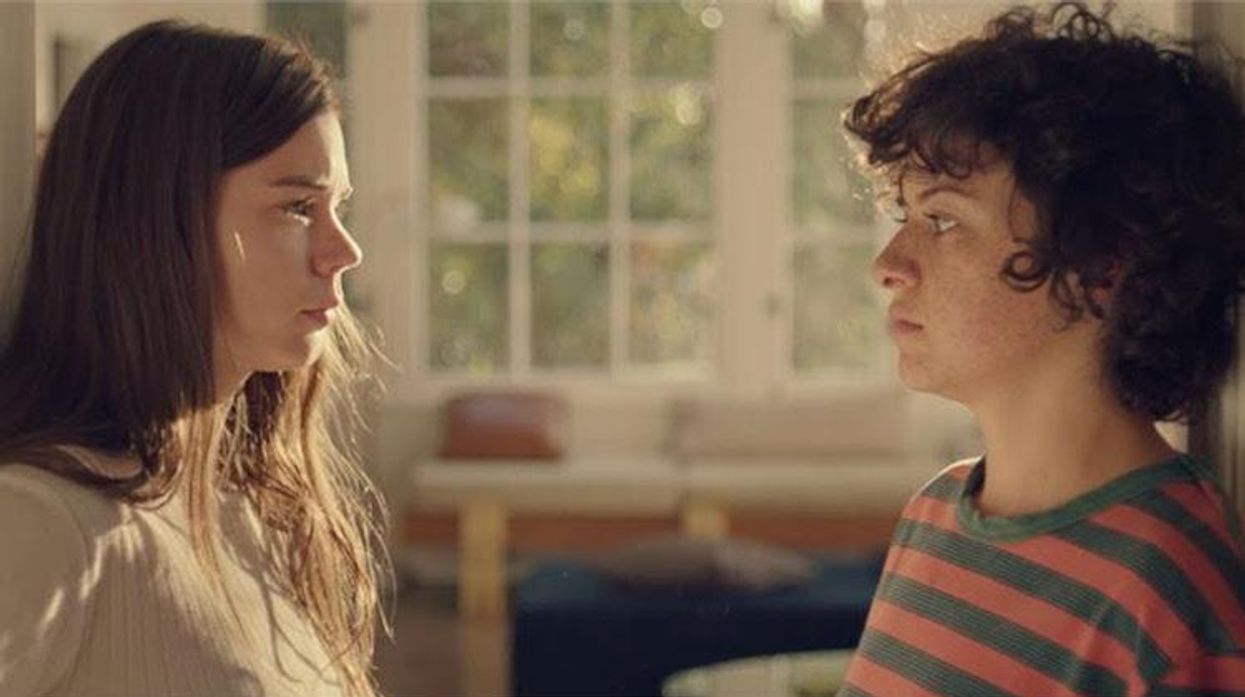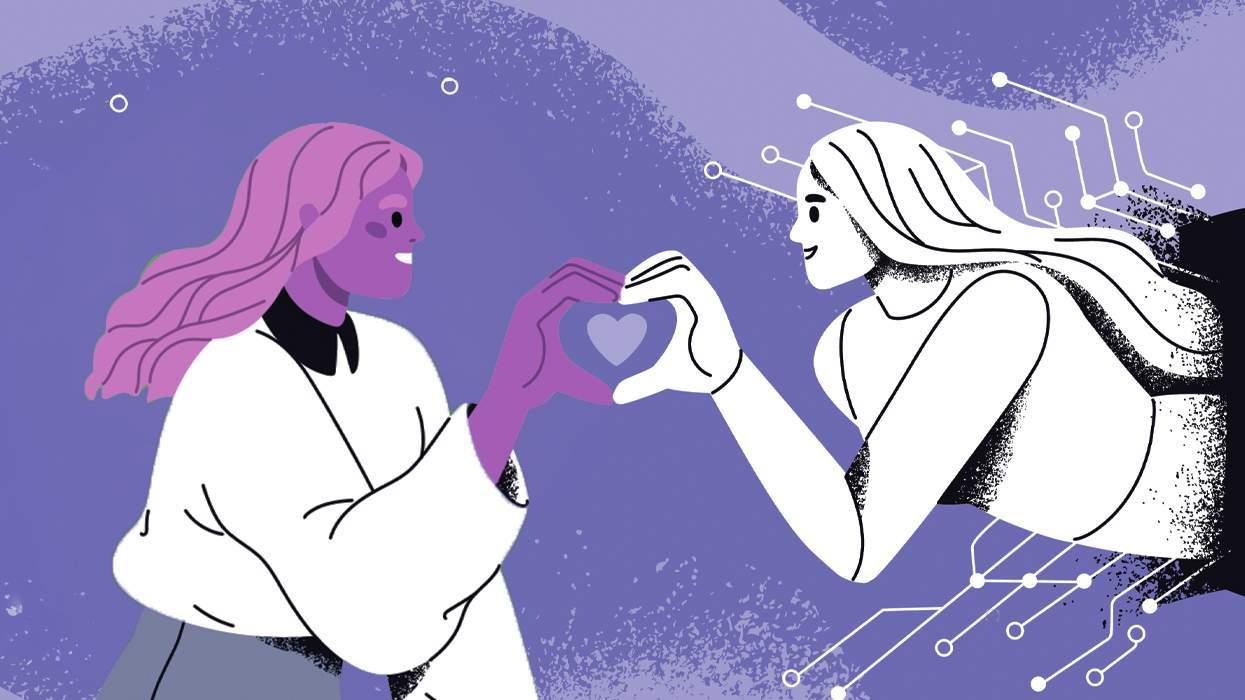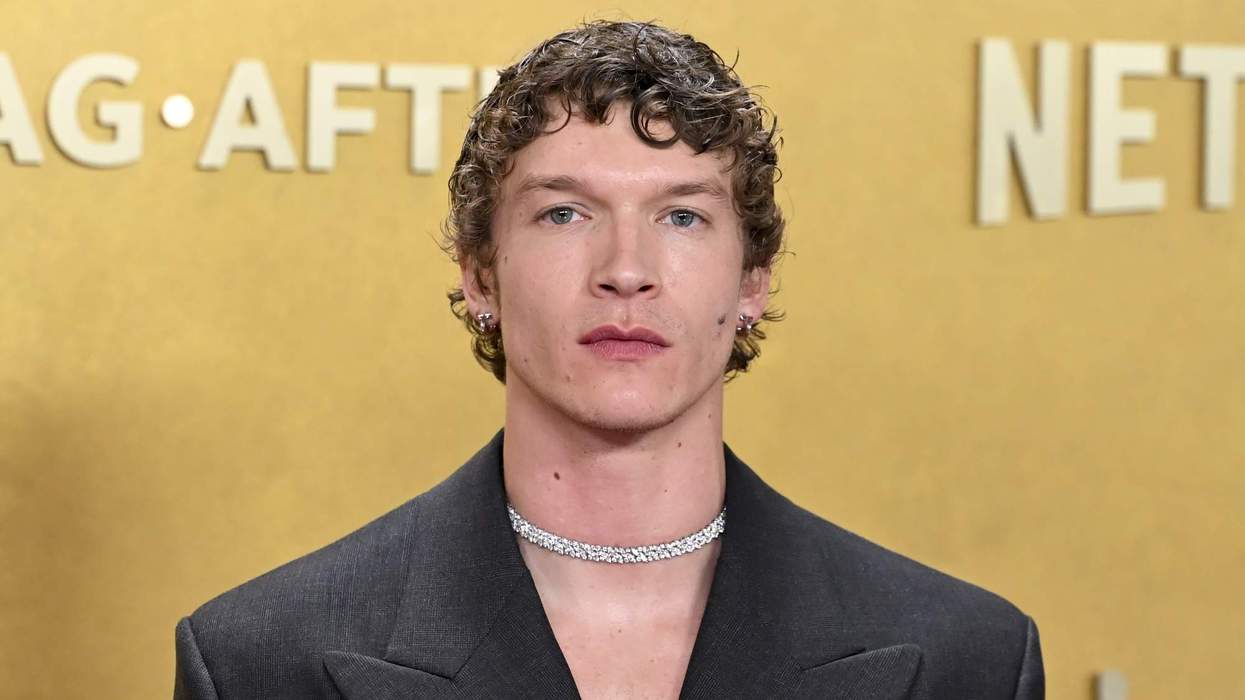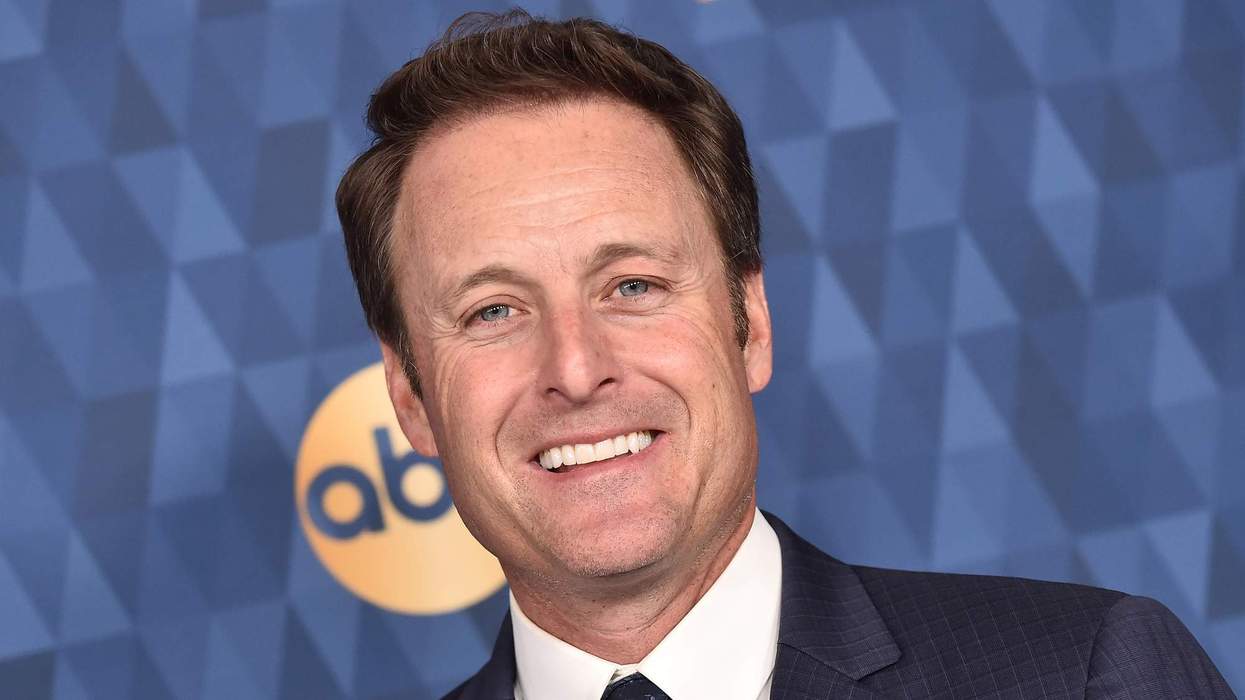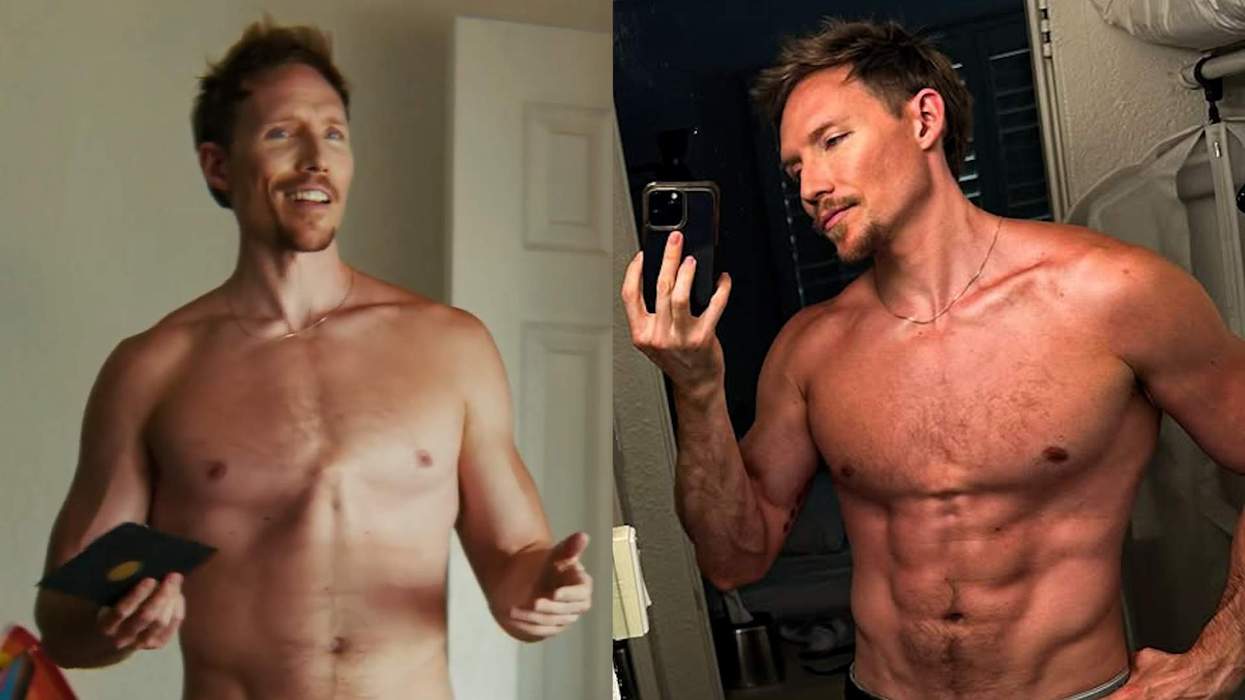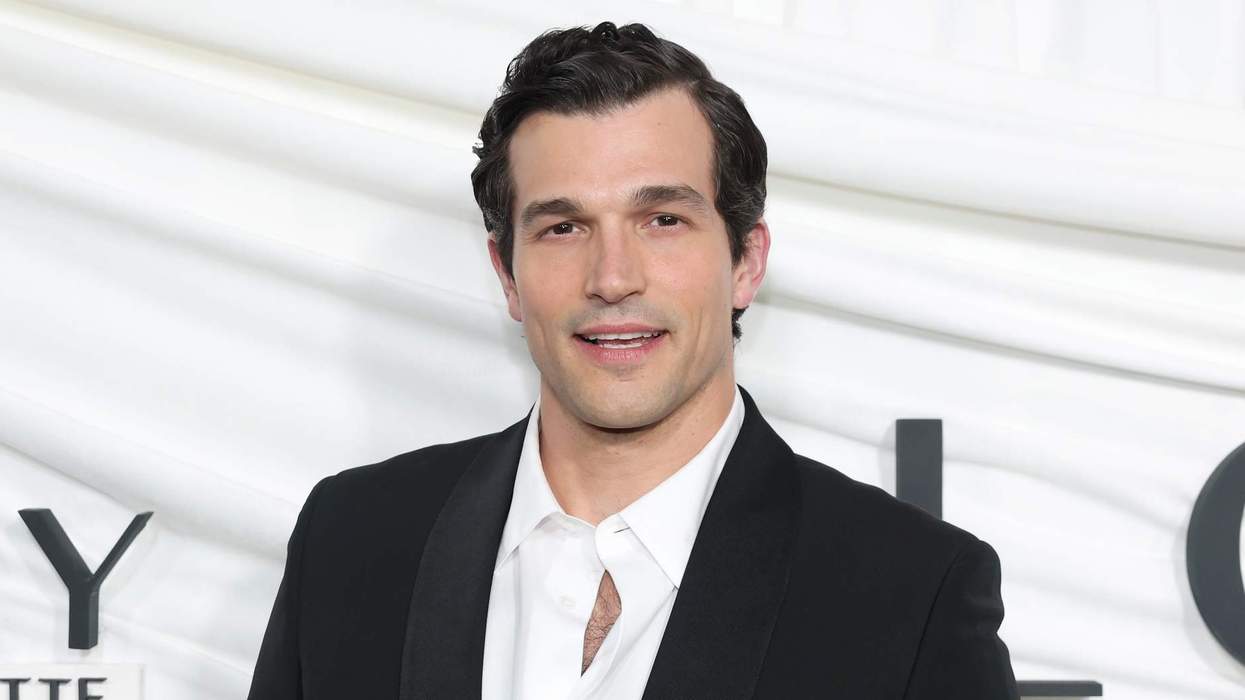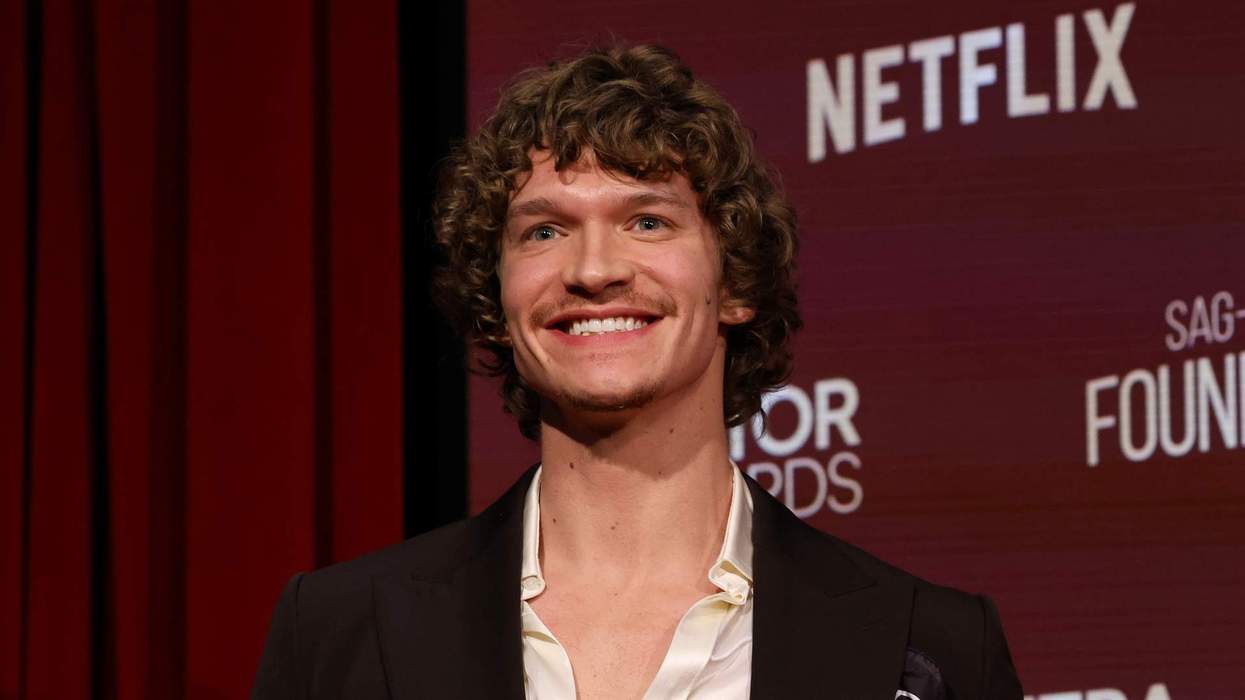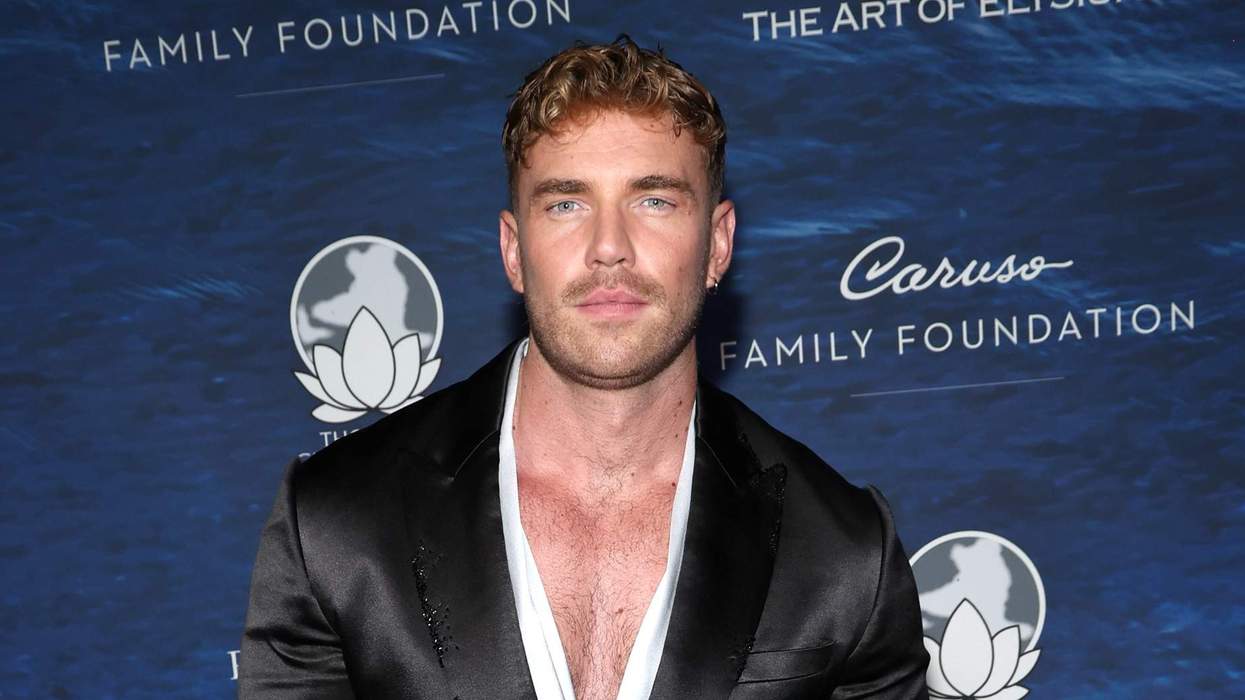Alia Shawkat and Laia Costa star in the new film Duck Butter, which premiered at the Tribeca Film Festival this year. The movie takes place over the course of 24 hours, and was filmed in real time as the day went by. Shawkat wrote the movie with her director, Miguel Arteta, after deciding she wanted to make something that answers the question: Why do breakups hurt so much, even when a person is clearly wrong for you?
Related | Actress Alia Shawkat on Bold Projects, Broad City & Being Queer in America
Shawkat and Costa play Naima and Sergio, respectively, two women who meet and decide to spend 24 hours together, having sex on the hour, in order to try and break through the sorts of mind games that inevitably blossom at the beginning of new relationships. They're joined in the cast by comedy greats including Kumail Nanjiani, Kate Berlant, Hong Chau, Mae Whitman, and Jay Duplass.
We caught up with the stars of the queer film to talk about how they tackled this unusual project that demanded a level of chemistry highly intimidating to most actors.
OUT: I want to start with how you see yourselves personally in these characters, and in the story? What did you tap into personally to play these roles?
Laia Costa: I relate to Sergio just in one way, and that's the way I throw myself into things. Which is true. But nothing else. In my personal life, it's totally different.
Alia Shawkat: My life is very similar (to my character's). I wrote it with Miguel [Arteta], and when we started we were talking about these unhealthy, slightly narcissistic relationships we'd been in. The thing that I related to the most was being with someone and having a hard time with intimacy in general. Learning how to be open to somebody. And the idea of starting off going 'I'm so in!' and the minute things start to get real being like, 'OK, I'm not as in as I said I was.' A lot of the moments that Naima experiences in the bathroom I've definitely experienced. The escaping, the running away from wanting to expose yourself... I relate to that very much. That's actually a fear of mine, getting locked in the bathroom, so that's why we put that in there. I got locked on a bus bathroom once on a school field trip. And I couldn't open it and they had to call the fire department to open the door. They were like, 'Back away!' And they had to axe it open.
I want to go back to the inception of this idea, where it first began. And the journey you took to arrive at the completed script. Was there a specific moment that you realized you wanted to make this film?
AS: Miguel and I had worked together on a film years ago, and he approached me and said he wanted to write something with me, we'd become really good friends. And we started with the idea of wanting to write about why it hurts so much, when something ends. When something is toxic and you've realized you're not meant to be with a person, it's not like, 'Oh, great. I'm not meant to be with this person. See ya!' You're actually still really upset, and convinced it will maybe work. So we started by sharing stories about these relationships we'd been in, and wanting to make a film about love or the idea of it. That's how it started--first it was about a relationship that was a year and a half, between a man and a woman. Then it became about two women over the course of 24 hours. So it changed a lot but was always about the idea of why it's so hard to be yourself with somebody.
With the 24-hour film setup in real time, how did that experience go? What was most difficult, what was easiest? You, Laia, have done a film, Victoria, that was all in one take before, which is sort of in this realm.
LC: I was having so much fun. A movie like that demands you to be very present all the time, and if you're present time goes by very fast, actually. So if you're working and doing a movie which you love, it's great because it's just about having fun and playing and keeping rolling. I remember the process being really exciting. I thought it was an amazing experience.
AS: It made it hard to go back to other scripted jobs after. Experiences where you're--not falsely recreating, but having to act--we didn't have to act that much in this. Because we just got to live it, and be present in it.
That's the reason you did it in real time, to simulate the exhaustion of staying awake 24 hours? It must have made it easy, in a way.
AS: Yeah, it did.
LC: We didn't have to fake it. We felt it.
Were you feeling like you were going to die by the end?
LC: No, we went to dinner after.
AS: When it was over, we were actually more amped. Halfway through there was a dip of really being tired, at 12 hours. And then Miguel made us run down the hill and back up again, and our energy skyrocketed. It was really hard to sleep by the end of it, actually. We got ice cream.
So Miguel is your neighbor and friend, Alia. And you, Laia, had originally been cast in a supporting role and moved to the lead. How did that feel?
LC: Amazing. I have a meeting with an LA director in three days, for a supporting role. And I'm going to go and ask him for the lead role. Because it worked here, so why not?
In regards to the queer aspect of this film, I know it wasn't with the intent of 'Oh, let's make this lesbian for the sake of it being lesbian.'
AS: When we decided to change the character, because Laia's role was initially for a guy... it solved a lot of problems in our script, and the story we wanted to tell. The truth of what we wanted to say came across a lot more. Even though it was about two women, for this story, it's not about their coming out story. It's not about the challenges that they've experienced. It's just showing these two people. And that's important to me, in film. To show that different side of it. It's not only that story to tell, in a queer narrative. And also to show sex in a different way, outside of the male gaze. We shot in a really intimate way. Sex is a big part of my life, and wanting to show sex in a way that isn't men sexualizing two women having sex. Even Blue Is The Warmest Color--I love that movie, but the sex scenes are the weirdest part to me. The male director made them feel very strange, and they talk about it openly in interviews. It's very upsetting. This is important for queer cinema, and you're taking advantage of these women. Even though the sex scenes in this were sex scenes, they somehow felt desexualized, in a way. It sound incestual, but it was more like they're friends or siblings. Because it was more playful.
How did you navigate making sure the sex scenes felt consensual and cool and comfortable?
AS: We always talked about it before with the DP. We had a rehearsal process with just the DP, Hillary (Spera). Where we talked about how we wanted to shoot. We were the only three in the room for all the sex scenes.
LC: It's hard to answer. I never thought about it, because it was right all the time, and it was a game, and it was fun, and I was falling in love with her. For me, as an actress, when I'm doing sex scenes I'm usually very comfortable on set. I'm happy doing them. Some actors say 'I don't want to do sex scenes,' but I love them. It's the most fake thing your'e doing, actually. Because when you cry, you cry. When you laugh, you laugh. But when you're having sex, you're not actually having sex. So I love them. I'm always more worried about how they are going to shoot it, how it's going to be on screen, how they are going to edit it. Because that's the point. On set I'll be free and have fun and be totally OK, unless I hate the other partner. Which has never happened to me. But it's just a scene. That's it. The DP was amazing, and she was in control of the whole process in a way I was not able. But I trusted her. So everything was fine. It felt safe.
You started with this central question of 'why does it hurt so much?' Do you feel like either of you found an answer? Did you learn anything about heartbreak?
AS: I learned from you a lot. I used to have, when I was writing this, a much bigger fear of relationships and monogamy. And I'm not in a relationship now, but I'm not as repulsed by them. During the movie, it was obviously a fear I had--thinking that monogamous relationships are crazy. I still think that they're a little crazy.
They're pretty crazy.
AS: But I used to be like, 'Oh, god, never.' Now I'm like, 'I'm open to maybe one day.' Because for a while during the film it was all I thought about: 'There's no right way to date somebody. It doesn't make sense. Everybody's telling us this is how we have to do it, and it's not real.' But the film has opened up the conversation more. I'm a little more understanding. I'm not so reactionary.
What did you find on this set that you hope to recreate in future projects? Is there something that happened here that made you realize you want to conduct business in a certain way moving forward?
LC: For me it's the fact of being present. It's very difficult to not think about anything else. But when they say, 'Are you happy? If you're thinking about if you're happy, you might not be happy?' It's just about being present. I worked with a director and she said to me once that her favorite part of the shooting process is on set. Because she's not thinking about her life problems. It's the only moment she's busy, and doing something she likes. So for acting, that way of working makes sense.
AS: It made me realize I like being involved on jobs, rather than just a hired hand. I want to be on projects where my voice is heard. It was very collaborative. Everyone on the crew and us, if someone had an idea, we'd share it to make it better. It wasn't: 'This is the actors' role. This is the director's role.' We were all doing it together. It was such an important story to me and we all cared a lot. My mom always says this saying--'the fish stinks from the head.' So the people who put it together, like Miguel, it spreads throughout everybody, so everybody cares. The director, the creators... everyone is affected by the leader.


